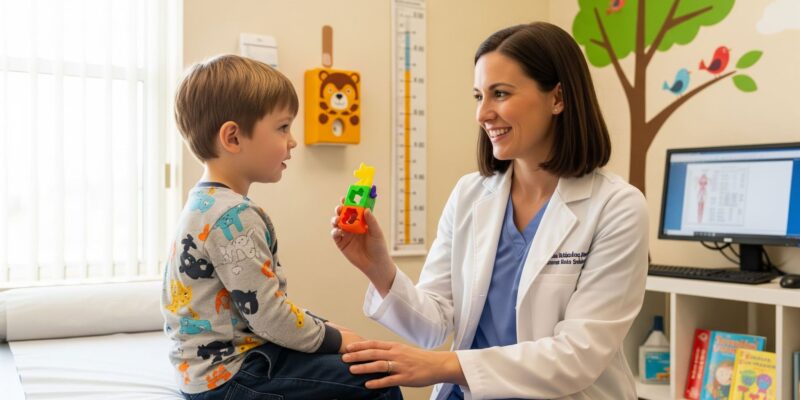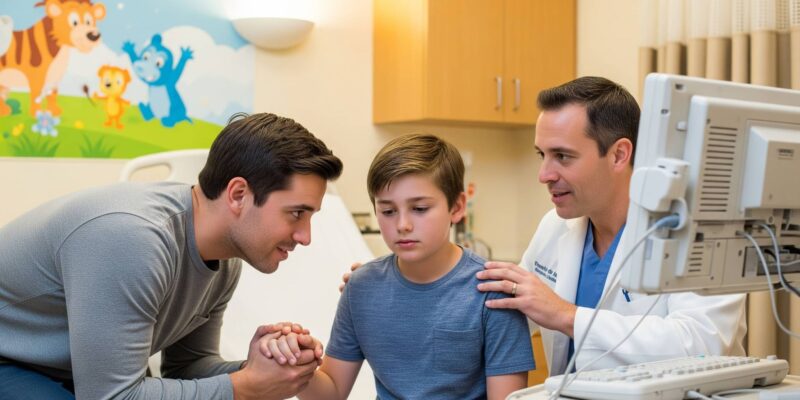Seizures can impact people of all ages, from children to adults, and they often require…

The Role of the Pediatric Neurologist in Diagnosing and Managing Neurological Conditions in Children
Neurological conditions in children can change your life in an instant. You suddenly have a lot to worry about, from getting a diagnosis, to understanding the prognosis, and planning out a treatment management plan. A pediatric neurologist is your partner in that process.
A neurologist is a doctor who treats problems with the nervous system. The nervous system includes the brain, spinal column, nerves, and some muscles. Some examples of neurological diseases or conditions include strokes, epilepsy, migraines, muscular dystrophy, behavioral disorders, and developmental delays.
A pediatric neurologist has further specialized to study these diseases in children. In addition to one to two years in residency or internship in general pediatrics, child neurologists have three years of residency in child neurology. Part of that training includes a year of training in adult neurology. Therefore, pediatric neurologists are specialists in both neurology and children.
That background helps pediatric neurologists focus on issues that particularly impact children. For example, we have the experience of helping children with neurological conditions improve their function in school and work on their peers and social functioning. In addition, we can help monitor their development, which is not something adult neurologists generally need to monitor in their patients.
Our first job is diagnosis. Child neurologists can order the tests needed to help narrow down the cause of a disorder. Some common tests include blood tests, lumbar punctures (spinal taps), MRIs, CT scans, and EEGs. The results of those tests can confirm or rule out suspected diseases or disorders.
After diagnosis, we can set up treatment or management regimes. Working with your family and the rest of your child’s healthcare team, we work to continuously tailor treatment. That is necessary because a child’s condition can change dramatically as they age. So, continuous monitoring helps us provide the best care possible. We can also coordinate with other care providers and educators, such as your child’s school and any specialized care providers, to ensure that they are complying with best practices for your child.
Want to find out more? Contact us today.



